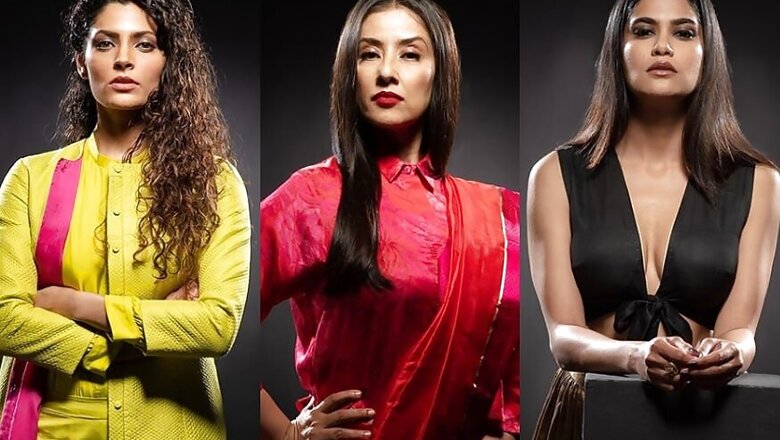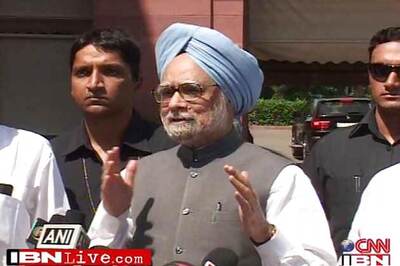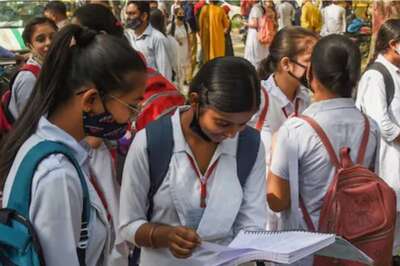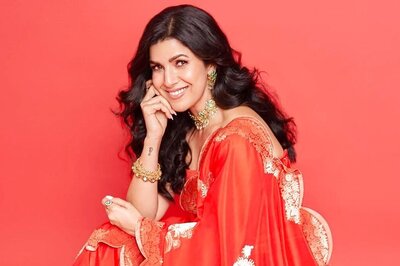
views
From a time when characters offered to women were largely a reflection of the parts they were expected to play in society, to roles where they can define a societal change, over 100 years old, the Indian film industry has come a long way. In fact, as protagonists, the roles that women play on screen in driving the narratives forward has undergone a paradigm shift.
But what does this mean to the women who play these parts? Ahead of Women's day, in a round table discussion with News18, Women of Netflix -- Manisha Koirala (Lust Stories, Maska), Saiyami Kher (Choked) and Aditi Pohankar (She) -- shed a spotlight on the industry transformation from the perspective of ladies who are far more than just a pretty face.
You have seen Bollywood as an industry where female driven characters were rare. Do you think we have progressed on that front?
Manisha: By large, yes. The fact that more women directors, writers and technicians are coming up, there’s definitely is progress. At least on OTT platforms I see a change. There women have much meatier roles and more relatable characters to play. But in Bollywood I still see the same things getting repeated and but I guess that also has a charm of its own. Having come from that space, I don't want to be critical, but I think as an actor the range that we get to perform on streaming platforms is a lot more. Unfortunately, in our cinemas, after you cross 40 you are typecast into a sister or a mother while in OTT you could be leading a show.
Saiyami: We have come a long long way, I’ll take you back to the time when my grandmother, Usha Kiran started acting. She got into the profession during a time when acting was looked down upon. It was actually a demeaning thing to become an actor. Likewise, recently when I was doing a film in the south, Nagarjuna Sir told me that women there were not allowed to act and there was a time when his father had to act out the actress’ part. Now, is a very good time, because women are telling their stories and there's an audience wanting to listen to it. Be it Meghna Gulzar directing her films, Sridevi Ma’am in English Vinglish or Taapsee Pannu in Thappad, we are seeing a change.
You mentioned women being typecast in certain roles after an age. Why do think that female actors have a short career span as compared to male actors?
Manisha: Barring one or two cases, the industry has consistently been male dominated. Like somebody recently made a comment, women were considered as the second citizens. We had to kind of adjust to that fact that it was always a male driven thing. Maybe it's got to do with economics. Maybe it's got to do with the mind frame of the people who are watching it or people who are making it. It is only now that a lot of women issues are coming up whether it's equal pay or #MeToo movement, women have started talking about equality, demanding respect, and not becoming the second citizens, which is also reflecting in the stories that we're telling.
Aditi: It is not about Hollywood or Bollywood or industry-specific, it’s a general change all over. Somehow women then had accepted the suppression but when you decide that you want to change your situation, you know that you can. That is the change we are seeing in the past decade.
Saiyami: It's everywhere because it is pretty much the same things that everyone shares. So even if there are male driven films, women are speaking up making their own films putting their own money so I feel like as ma'am said, it is it is economically driven.
People in our country look up to the actors and how they portray themselves in a film. Do you think an actor should be responsible for the kind of roles they are opting?
Manisha: I have certain views. It doesn't have to match with everybody else's. But because I've done so many things and watched more it's an internal debate. As an artist, I don't want to limit myself. I want to have the freedom and choose the roles that can extend my horizon. But as a human being, can I really? Coming from a health situation, do I want to get into the negative space? But, having said that, I don't think there should be a restriction on societal expectation.
Saiyami: One of my recent characters was of a girl who has to kill a number of people. I know morally it is wrong to kill people, but there should be a freedom to do negative characters. We are talking about women empowerment, and women this and that and then there is so much hype on negative characters. In my opinion, negative characters are all right, because it's something you need to move the story forward. There shouldn’t be any hypocrisy.
Hypocrisy about?
Saiyami: For instance, we tend to talk so much about empowering women and then we go on to write songs such as, “Mai tanduri murgi hun yaar, gatkale mujhe alcohol se”. I think is a little hypocritical. I think there's a bit of responsibility needed here from the male writers and directors (in the content space). I am totally fine with the item numbers because mujras have been there since ages. If the story needs a woman dancing sexually to take the narrative forward it is, fine. But adding a song in the end credits for the sake of it is hypocrisy. If I'm in a position (as an actress) where I can say I don’t want to do it, it is fine. And when we’ll say ‘we don't need to do it’, that would be an ideal situation.
Aditi: I think, I’ll become a producer, because who gives you such choices.
Manisha: Well, Sushmita (Sen) and I made a film and we had no hero in it.
Follow @News18Movies for more



















Comments
0 comment